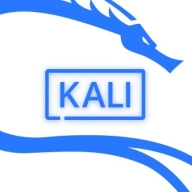

Kali Linux and AlmaLinux target different market segments. Kali Linux appears more advantageous for penetration testing with its specialized tools, whereas AlmaLinux seems superior in stability and enterprise readiness.
Features: Kali Linux offers a comprehensive suite of security-focused tools perfect for cybersecurity tasks, specialized penetration testing applications, and advanced network analysis capabilities. AlmaLinux provides robust performance in enterprise environments, excellent compatibility with enterprise applications, and strong longevity due to its stability in updates.
Ease of Deployment and Customer Service:Kali Linux's deployment is straightforward, tailored for security professionals, supported by an active community and extensive documentation for troubleshooting. AlmaLinux offers seamless deployment through comprehensive support channels, designed for enterprise environments, with reliable customer service and long-term support options.
Pricing and ROI:Kali Linux is open-source, incurring no direct setup costs, making it ideal for projects with limited budgets and high functionality needs. AlmaLinux is also open-source with low setup costs but offers potentially higher ROI for enterprise use due to its stability and available support, offering a business-oriented value over time.

| Company Size | Count |
|---|---|
| Small Business | 10 |
| Midsize Enterprise | 2 |
| Large Enterprise | 14 |
AlmaLinux is an open-source, enterprise-level Linux distribution designed to provide stability, high performance, and community-driven support. It offers compatibility with RHEL, making it a reliable option for businesses seeking robust OS alternatives.
Built by CloudLinux, AlmaLinux serves enterprises looking for a powerful Linux distribution. It boasts seamless transitions from CentOS, providing a familiar environment for IT teams. With its open-source nature, AlmaLinux empowers organizations by offering control over their workflows. It supports diverse workloads, making it suitable for handling anything from basic setups to complex architectures. AlmaLinux stands out due to its strong security features, which focus on protecting sensitive data and maintaining secure server environments.
What are AlmaLinux's most important features?AlmaLinux has been implemented across industries like finance, healthcare, and technology due to its reliability and adaptability. In finance, it ensures secure transactions and data integrity. Healthcare organizations rely on it for managing sensitive patient data. Tech companies use it for its stability and community-driven enhancements, making it a versatile choice for diverse applications.
Kali Linux is widely used by organizations for penetration testing, vulnerability assessments, web application security, network audits, ethical hacking, and open-source intelligence, providing extensive free features.
Organizations run Kali Linux in virtualized environments alongside other operating systems, employing tools for automated scans, malware identification, infrastructure testing, and application development or hosting. These users benefit from lower maintenance requirements and a smaller footprint. The toolset includes Nmap, SQLMap, Metasploit, and Hydra, ensuring effective security assessments. Its high scalability, performance, user-friendly interface, and extensive documentation enhance the platform's usability. Known for stability, flexibility, and virus resistance, Kali Linux supports web security, troubleshooting, and configuration tasks comprehensively.
What are the most important features of Kali Linux?
What benefits and ROI should users look for in reviews?
Kali Linux can support industries in improving security through stable and flexible environments that resist viruses and provide extensive documentation. Users employ it for web security, troubleshooting, and configuring capabilities. Necessary improvements include automation, user-friendliness, and integrating AI and blockchain. Enhancements in security features, faster installations, and better learning tools are also essential. Machine learning integration and non-enterprise user functionalities can address current limitations.
We monitor all Operating Systems (OS) for Business reviews to prevent fraudulent reviews and keep review quality high. We do not post reviews by company employees or direct competitors. We validate each review for authenticity via cross-reference with LinkedIn, and personal follow-up with the reviewer when necessary.